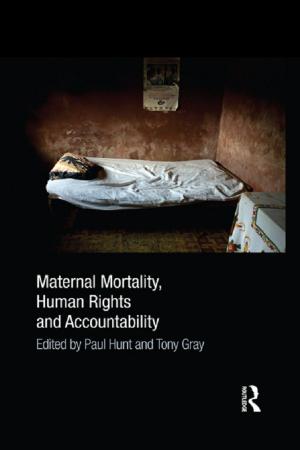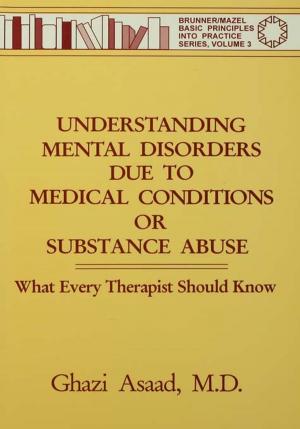Winnicott and 'Good Enough' Couple Therapy
Reflections of a couple therapist
Nonfiction, Health & Well Being, Psychology, Family Therapy, Mental Health| Author: | Claire Rabin | ISBN: | 9781317815266 |
| Publisher: | Taylor and Francis | Publication: | April 3, 2014 |
| Imprint: | Routledge | Language: | English |
| Author: | Claire Rabin |
| ISBN: | 9781317815266 |
| Publisher: | Taylor and Francis |
| Publication: | April 3, 2014 |
| Imprint: | Routledge |
| Language: | English |
Claire Rabin innovatively applies the Winnicottian theory of the ‘good enough mother’ to couple therapy, redirecting attention to the therapeutic relationship and the therapist’s self-awareness regardless of the methods used. Using this lens, even the therapist’s mistakes become an opportunity for repairing both the therapeutic relationship and the partners’ own personal maturity.
The intensity and pressure of couple therapy can make each case a test of the therapist’s competence. The need for neutrality constitutes on-going pressure on the therapist and the proliferation of therapeutic methods can cause confusion about which might be most useful in each situation. Applying theory effectively is easier said than done within the context of the powerful emotions unleashed in sessions, which can result in a catastrophic atmosphere. These factors can make it hard for therapists to utilise their own skills and knowledge within sessions of couple therapy.
The book explores how therapists and couples can unintentionally further ‘false selves’ without realising how the very tools of change may counter authenticity. Featuring interviews with an international range of couple therapists and case studies from the author’s own experiences, the key aspects of the ‘good enough’ concept are elaborated. Rabin shows how these ideas can strengthen therapists’ sense of security and safety in using their lived experience and intuition.
Winnicott and Good Enough Couple Therapy is the ideal book for clinicians seeking an overarching framework for working with couples or families, as well as those concerned with the importance of the client-helper relationship.
Claire Rabin innovatively applies the Winnicottian theory of the ‘good enough mother’ to couple therapy, redirecting attention to the therapeutic relationship and the therapist’s self-awareness regardless of the methods used. Using this lens, even the therapist’s mistakes become an opportunity for repairing both the therapeutic relationship and the partners’ own personal maturity.
The intensity and pressure of couple therapy can make each case a test of the therapist’s competence. The need for neutrality constitutes on-going pressure on the therapist and the proliferation of therapeutic methods can cause confusion about which might be most useful in each situation. Applying theory effectively is easier said than done within the context of the powerful emotions unleashed in sessions, which can result in a catastrophic atmosphere. These factors can make it hard for therapists to utilise their own skills and knowledge within sessions of couple therapy.
The book explores how therapists and couples can unintentionally further ‘false selves’ without realising how the very tools of change may counter authenticity. Featuring interviews with an international range of couple therapists and case studies from the author’s own experiences, the key aspects of the ‘good enough’ concept are elaborated. Rabin shows how these ideas can strengthen therapists’ sense of security and safety in using their lived experience and intuition.
Winnicott and Good Enough Couple Therapy is the ideal book for clinicians seeking an overarching framework for working with couples or families, as well as those concerned with the importance of the client-helper relationship.















